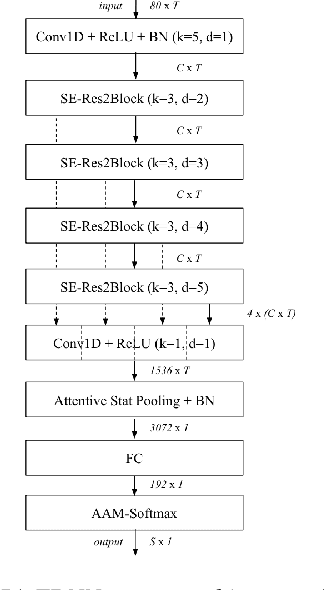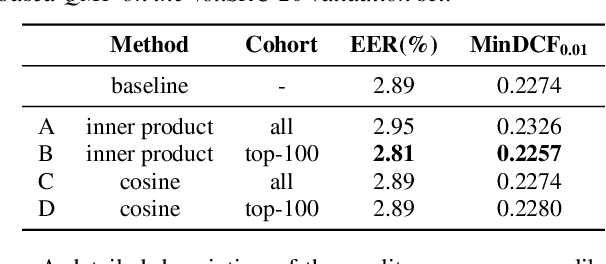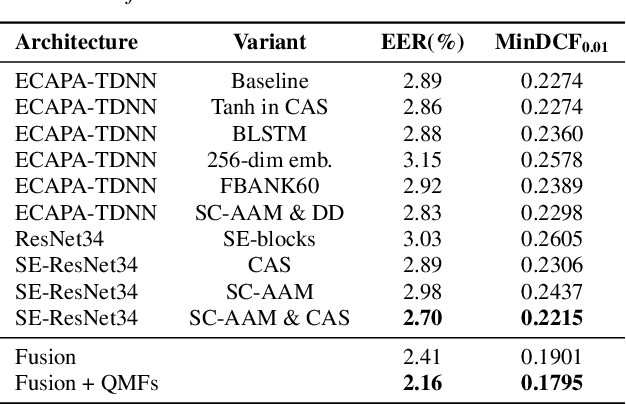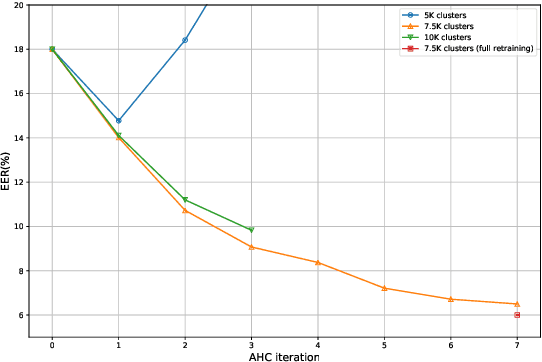The IDLAB VoxCeleb Speaker Recognition Challenge 2021 System Description
Paper and Code
Sep 09, 2021



This technical report describes the IDLab submission for track 1 and 2 of the VoxCeleb Speaker Recognition Challenge 2021 (VoxSRC-21). This speaker verification competition focuses on short duration test recordings and cross-lingual trials. Currently, both Time Delay Neural Networks (TDNNs) and ResNets achieve state-of-the-art results in speaker verification. We opt to use a system fusion of hybrid architectures in our final submission. An ECAPA-TDNN baseline is enhanced with a 2D convolutional stem to transfer some of the strong characteristics of a ResNet based model to this hybrid CNN-TDNN architecture. Similarly, we incorporate absolute frequency positional information in the SE-ResNet architectures. All models are trained with a special mini-batch data sampling technique which constructs mini-batches with data that is the most challenging for the system on the level of intra-speaker variability. This intra-speaker variability is mainly caused by differences in language and background conditions between the speaker's utterances. The cross-lingual effects on the speaker verification scores are further compensated by introducing a binary cross-linguality trial feature in the logistic regression based system calibration. The final system fusion with two ECAPA CNN-TDNNs and three SE-ResNets enhanced with frequency positional information achieved a third place on the VoxSRC-21 leaderboard for both track 1 and 2 with a minDCF of 0.1291 and 0.1313 respectively.
 Add to Chrome
Add to Chrome Add to Firefox
Add to Firefox Add to Edge
Add to Edge